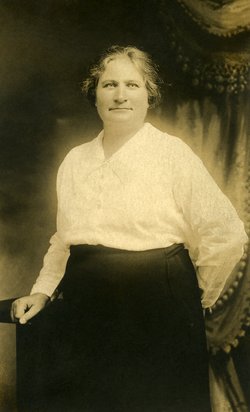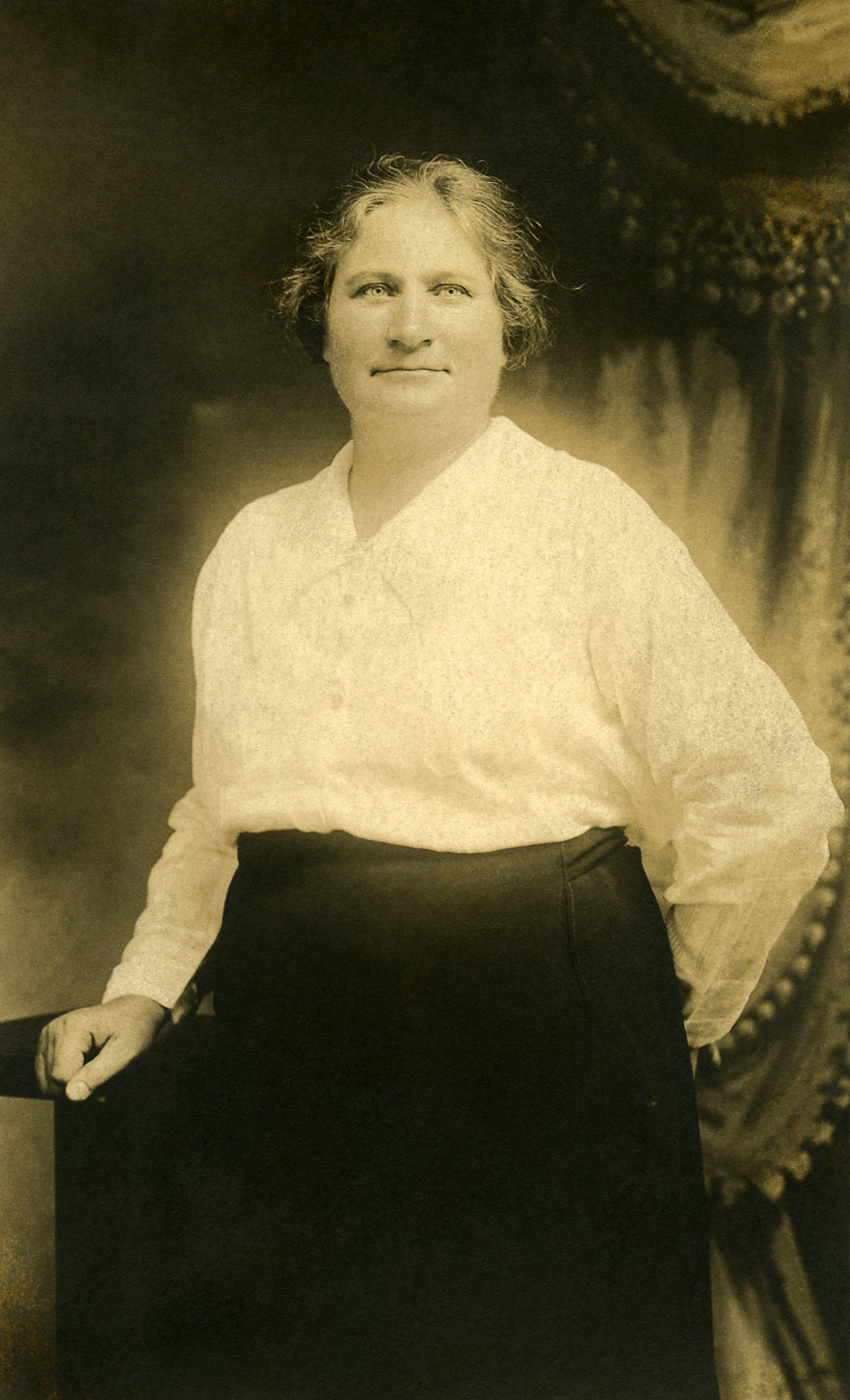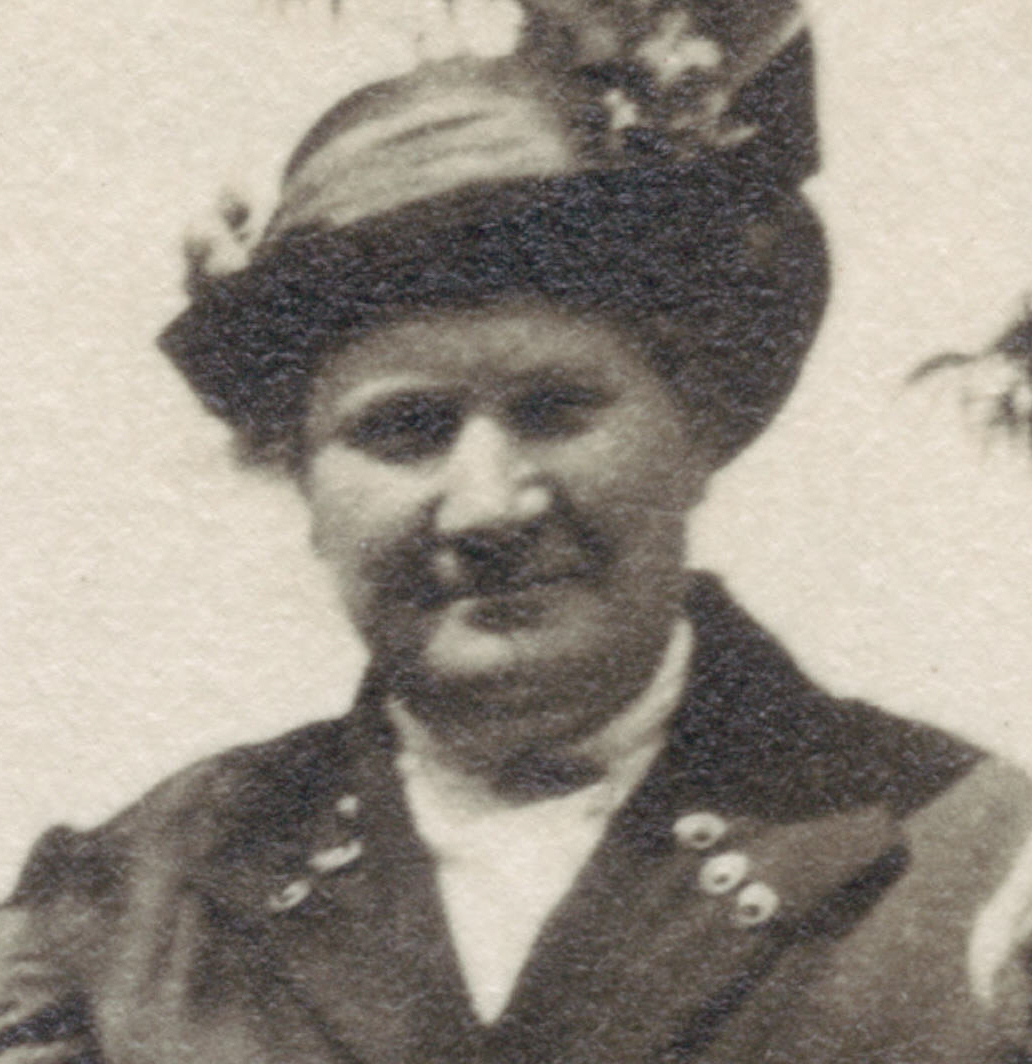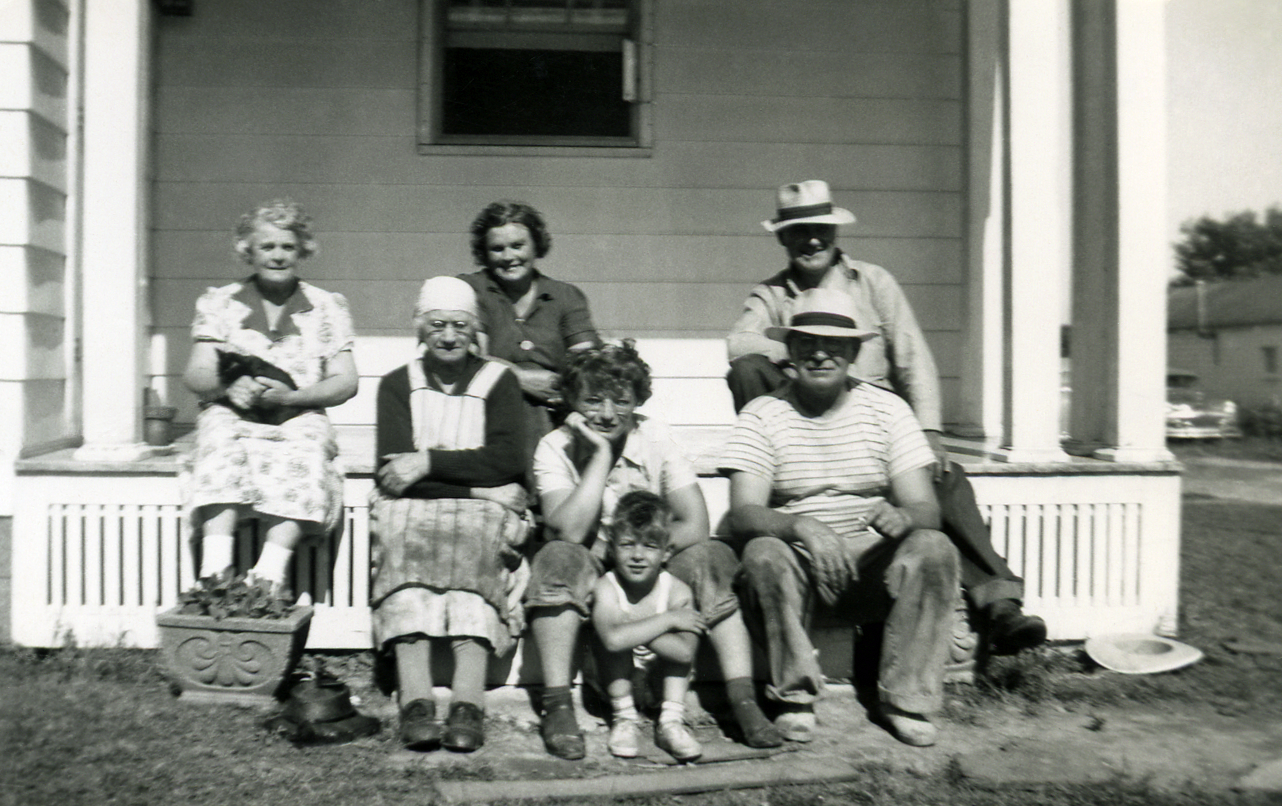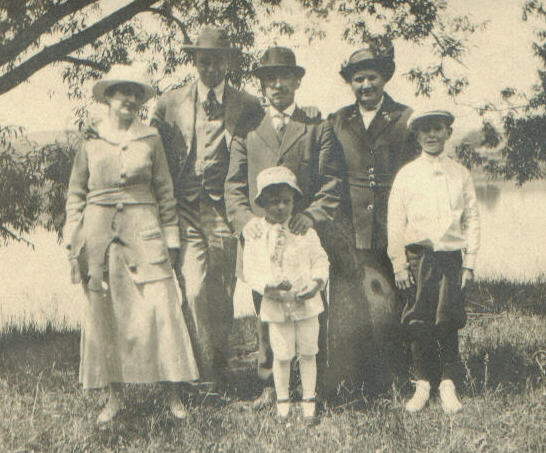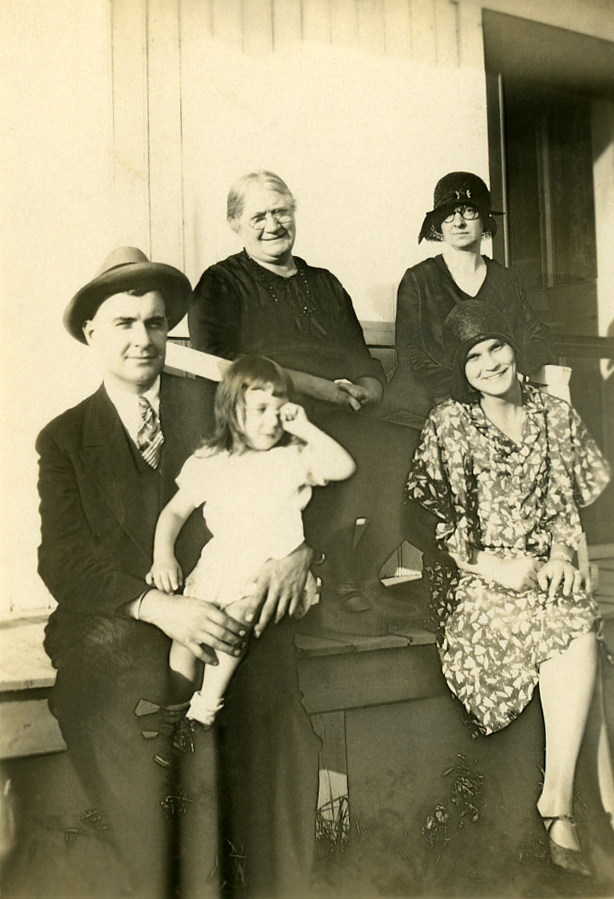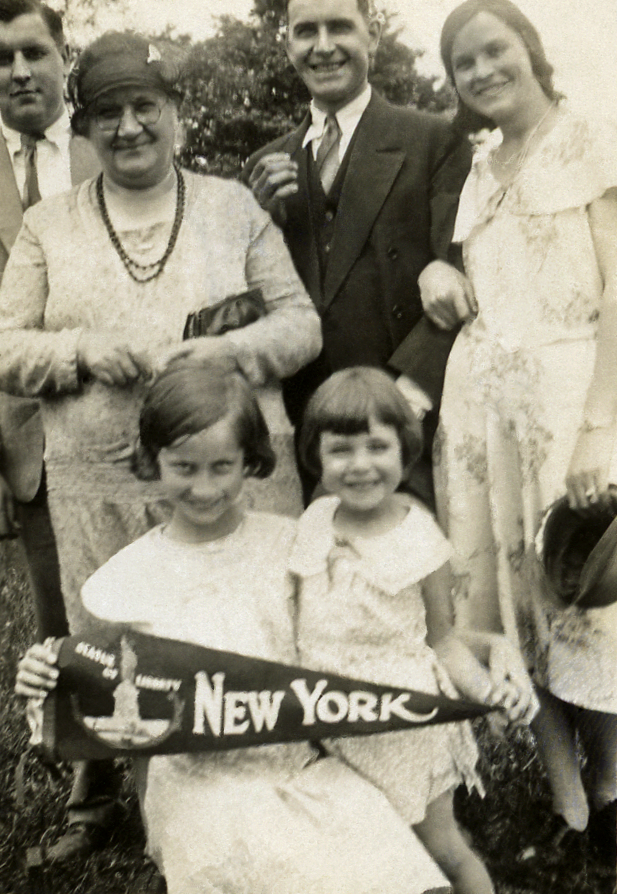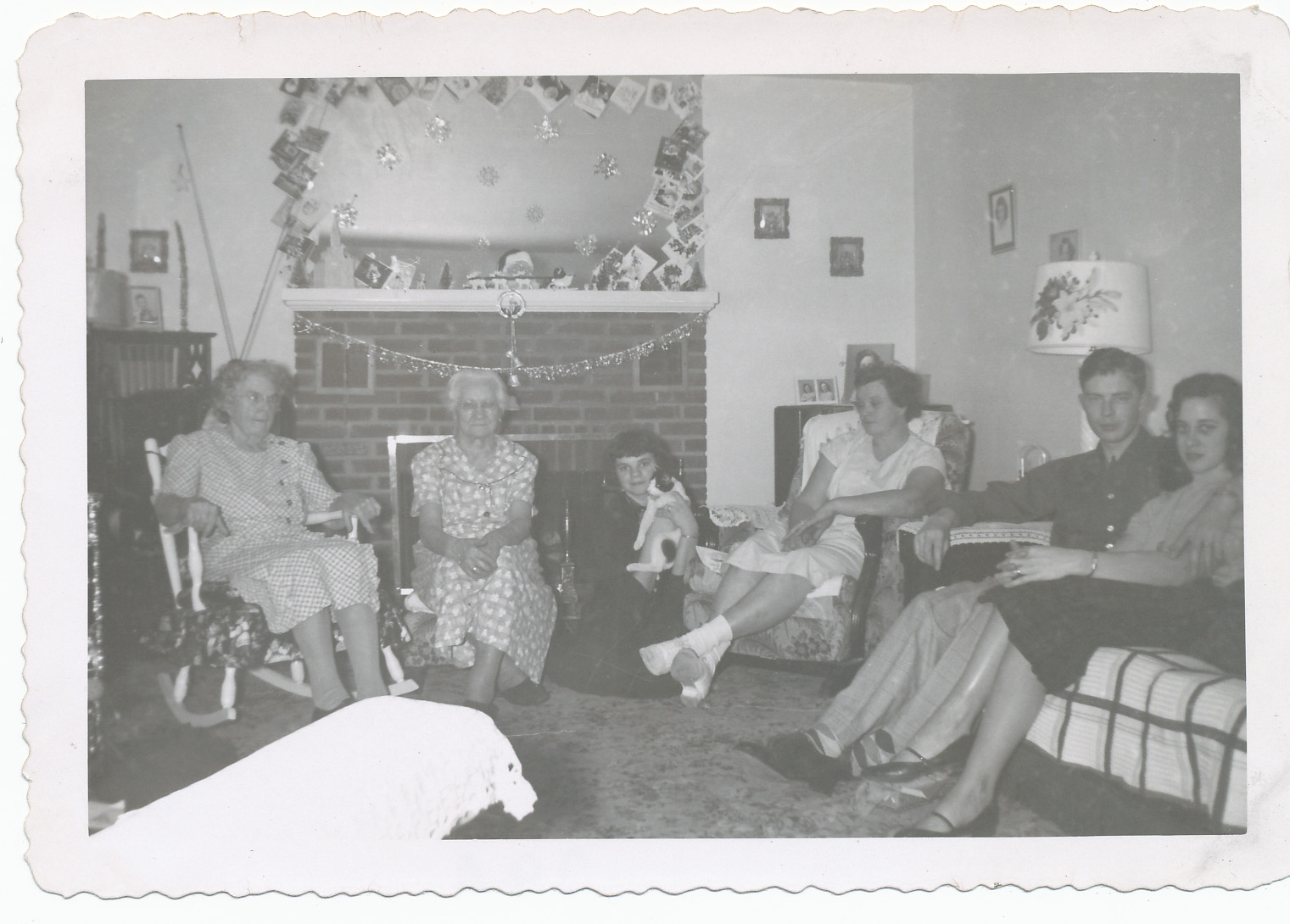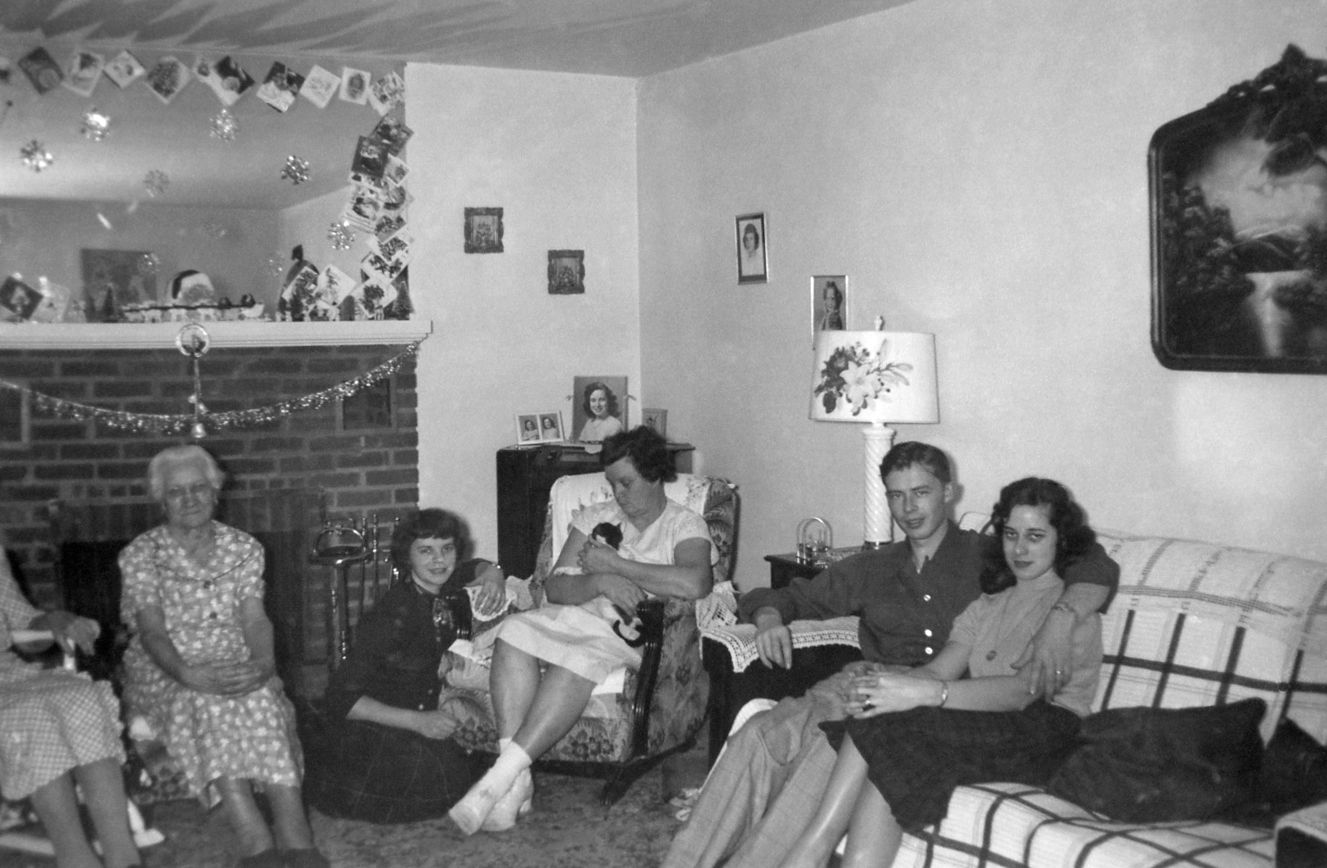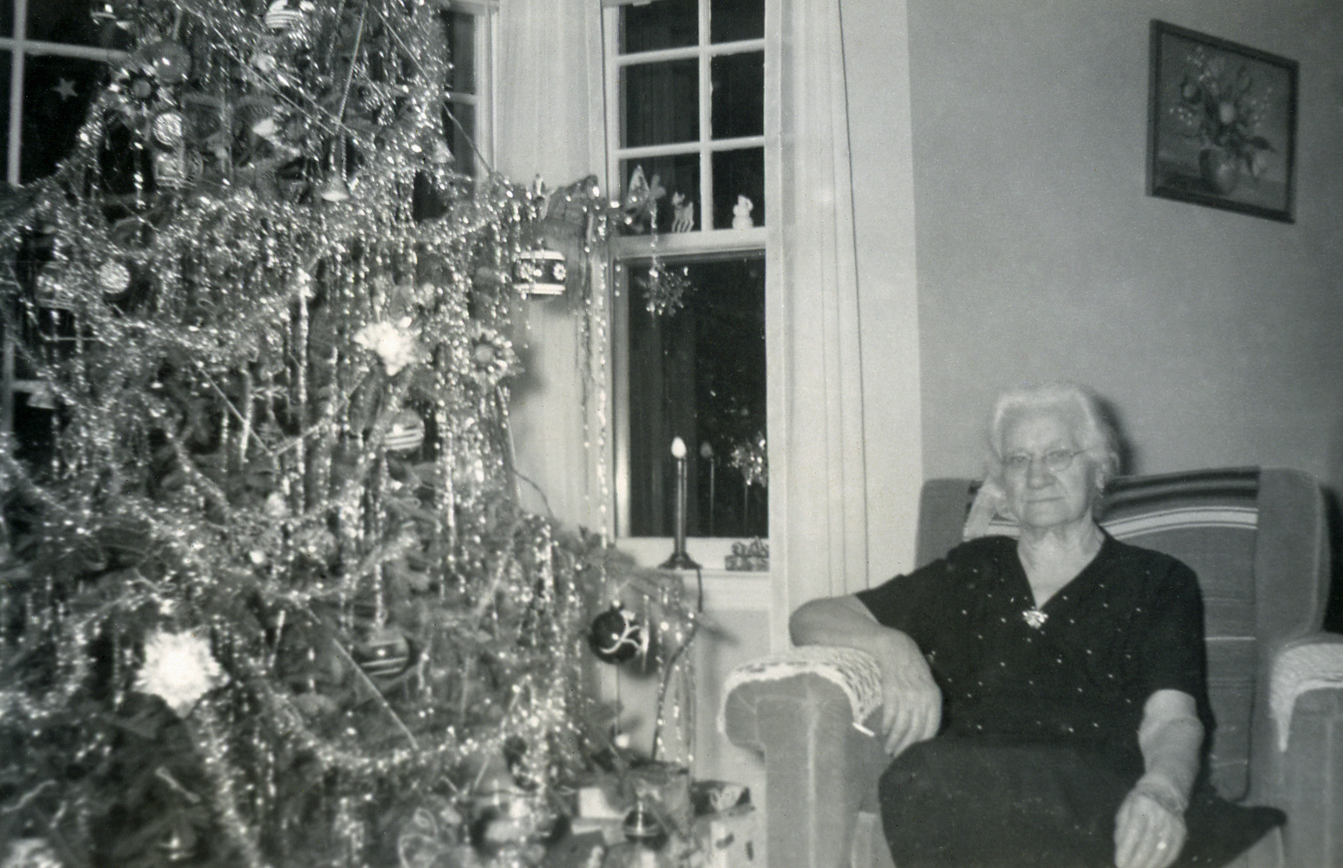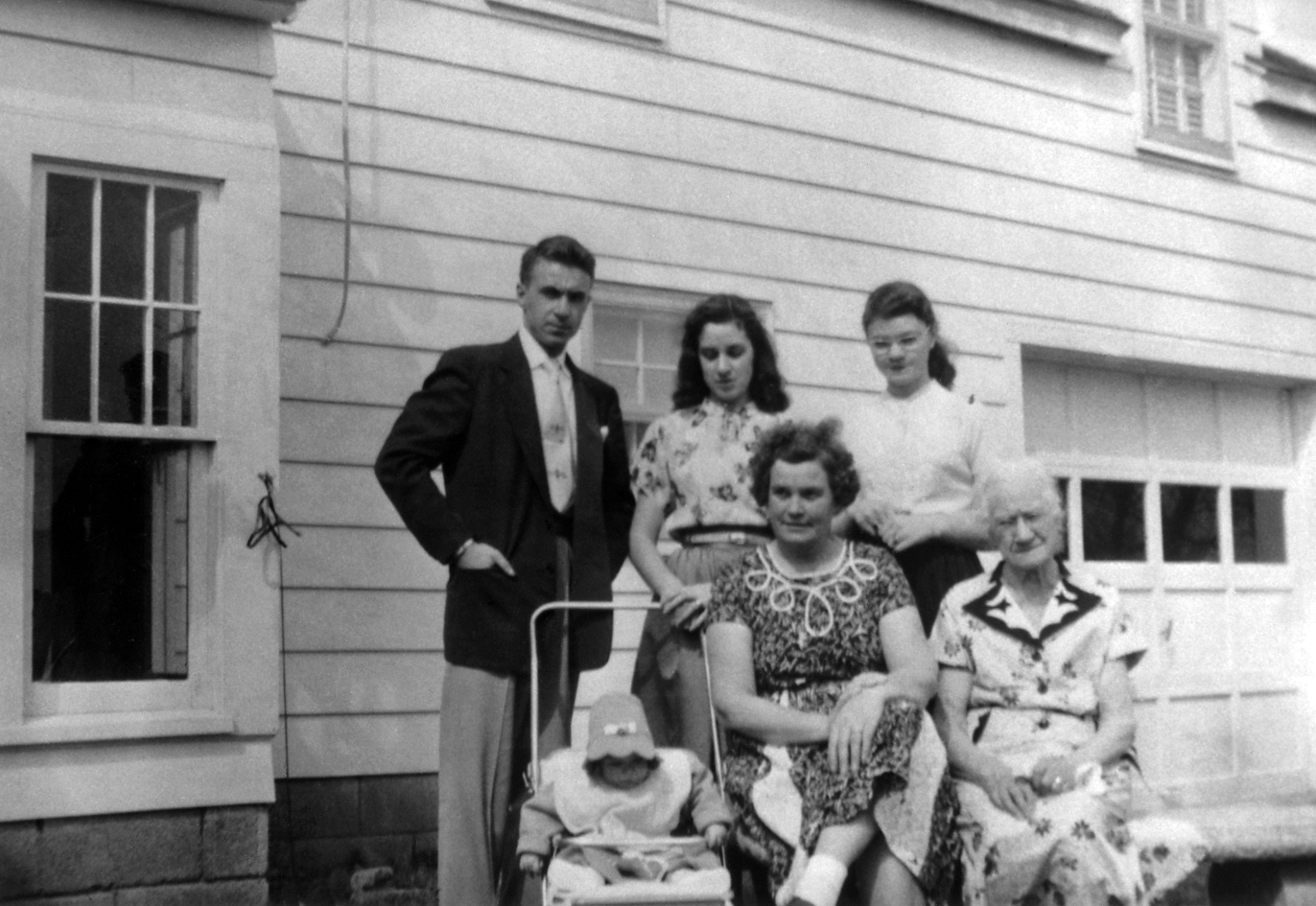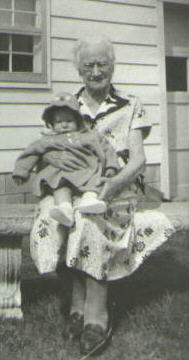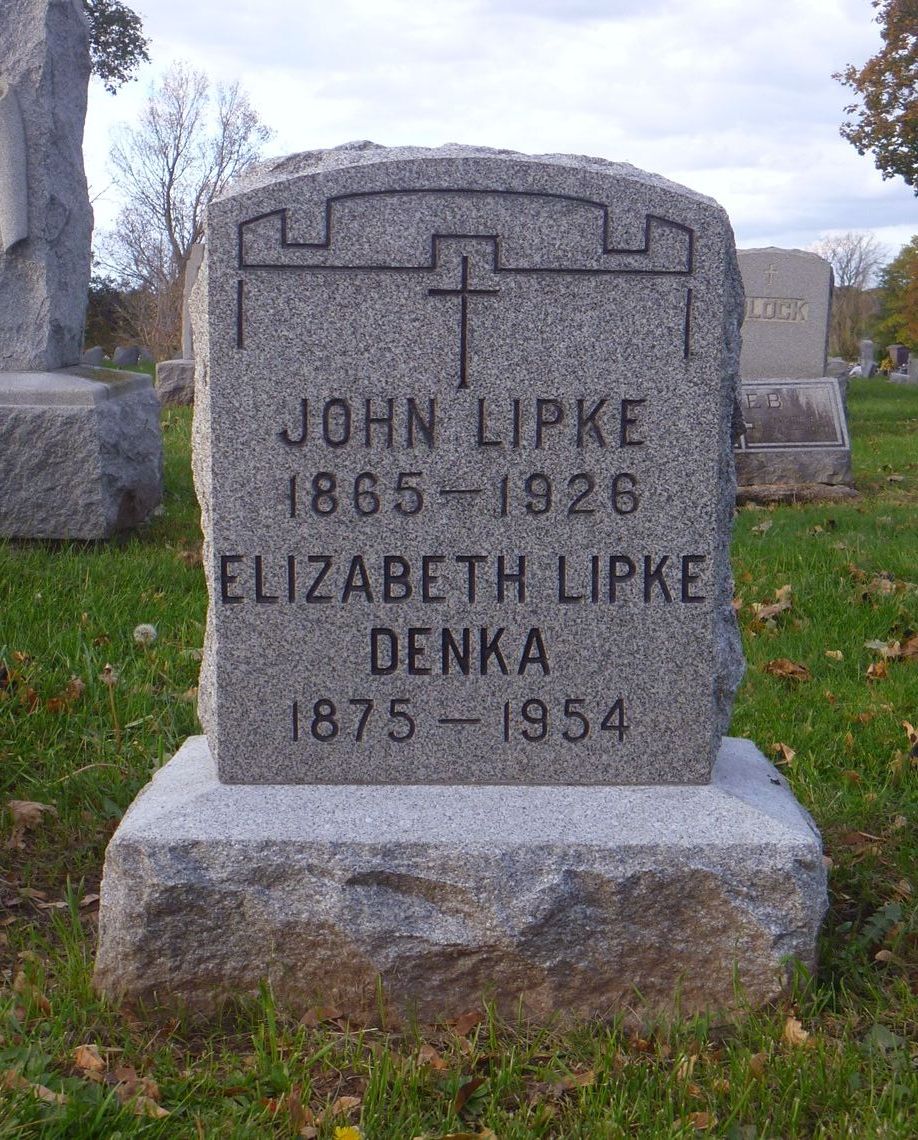She was baptized 21 February 1875 at the Catholic church of Sankt Albrecht (Saint Adelbert), about 3 kilometers north of Praust, as there was no Catholic church in Praust at that time. (Today the church still exists as kościół św. Wojciecha in Gdańsk Święty Wojciech.) The ceremony was performed by Father Augystyn Bober, priest of the church, and the godparents were Johann and Auguste Wróbel.
Elizabeth was known to have had at least one sister, Anna Rexin. The family is now suspected to have been of the devoutly Catholic Baltic/Polish ethnic minority clan known as the Kashubians, but for all practical purposes in the U.S. Elizabeth and her relatives were known as Germans--as indeed Elizabeth spoke German, grew up under Bismarck's Germanization and Kulturkampf policies, and was a citizen of the greater German Empire at the times of her birth, marriage, and emigration.
After being very popular with the boys (as she would tell her grandchildren much later), she married Johann Lipke, a Prussian Army veteran, in his hometown area of Guettland/Czattkau on 20 May (civil ceremony) and 21 May (Catholic ceremony) 1893 as documented in the District of Dirchau, [near Tczew] Kreis Danzig, West Prussia, Germany. She was 18 and he was 25, and some family stories say they had had one or more children together before marriage. They worked as agricultural laborers in the fields of Czattkau (today Czatkowy, Poland) and had several children born there. Sometime after 1898 they moved to Brodsack (today, Chlebówka, Poland), another agricultural village near the Vistula River southeast of Danzig, which was listed as their last residence before leaving the German Empire (ship's manifest). Finally in late 1904 they emigrated through Berlin to Bremen with their four oldest surviving children and departed Europe on the S.S. Chemnitz to New York City, arriving at Ellis Island on or about 2 December 1904. They survived the trip in steerage on this "cattle boat" not fit for human habitation, according to Elizabeth.
Johann and Elizabeth had seven known children: Johann Carl (d. 1897), Franz M. ("Frank") (1894-1970), Magdalena Elizabeth ("Lena" "Helen" "Betty") (1896-1983), Anna (1897-1937), Johann ("Jack") (1898-1954), Anthony ("Tony") (1907-1993), and Leonard J. (1912-1958). The youngest two children were born in America. The family first settled on the north side of Syracuse, New York near Johann's brother, and later moved a few miles out into the country to a farm they worked near North Syracuse. They all worked hard and fast to save enough money to send for relatives back in the Old Country to come and join them in the U.S. before World War I shut the doors.
After Johann died of pneumonia in early 1926, Elizabeth repeatedly encountered a widower at Assumption Cemetery in Syracuse where both of them went frequently to visit the graves of their spouses. He too was a native of the Danzig area. Elizabeth Lipke, 51, soon married widower John M. Denka, 58, on 28 August 1926. The marriage was officiated by Rev. Frederick Schroff of the Church of the Assumption in Syracuse, where the Lipke and Denka families were longtime communicants. The couple lived at the Denka home in Syracuse until Mr. Denka died in 1930.
Elizabeth Denka lived for another 24 years, at different times living with her sons, Anthony and Jack. She also worked as a paid companion to an elderly woman in Syracuse until health problems and old age forced her to retire.
Elizabeth Lipke Denka died at 7:30 p.m., Tuesday, 25 May 1954 at at St. Joseph's Hospital, Syracuse, New York, after a stay of three days. Cause: Stroke; Contributing factor: had had diabetes mellitus for eight years. Her true age at the time of her death was 79 years, 3 months, and 16 days. She was survived at the time of her death by her sister, Mrs. Anna Rexin, four children, fifteen grandchildren, thirteen great-grandchildren, and several nieces and nephews.
She was remembered by her family as a very devout Catholic who attended daily mass, a very good cook, an expert and prolific knitter, and a determined, dominant personality. She maintained her German ways and kept her heavy accent, but her children were Americanized. She never wanted to go back to the "Old Country," as she was adamant that life in America was much better.
She was buried 28 May 1954 at Assumption Cemetery. Her grave lies between those of her first husband and their daughter, Anna, in the Lipke family plot, and within sight of the grave of her second husband.
[CLICK on each photo to read caption and view full-size.]
She was baptized 21 February 1875 at the Catholic church of Sankt Albrecht (Saint Adelbert), about 3 kilometers north of Praust, as there was no Catholic church in Praust at that time. (Today the church still exists as kościół św. Wojciecha in Gdańsk Święty Wojciech.) The ceremony was performed by Father Augystyn Bober, priest of the church, and the godparents were Johann and Auguste Wróbel.
Elizabeth was known to have had at least one sister, Anna Rexin. The family is now suspected to have been of the devoutly Catholic Baltic/Polish ethnic minority clan known as the Kashubians, but for all practical purposes in the U.S. Elizabeth and her relatives were known as Germans--as indeed Elizabeth spoke German, grew up under Bismarck's Germanization and Kulturkampf policies, and was a citizen of the greater German Empire at the times of her birth, marriage, and emigration.
After being very popular with the boys (as she would tell her grandchildren much later), she married Johann Lipke, a Prussian Army veteran, in his hometown area of Guettland/Czattkau on 20 May (civil ceremony) and 21 May (Catholic ceremony) 1893 as documented in the District of Dirchau, [near Tczew] Kreis Danzig, West Prussia, Germany. She was 18 and he was 25, and some family stories say they had had one or more children together before marriage. They worked as agricultural laborers in the fields of Czattkau (today Czatkowy, Poland) and had several children born there. Sometime after 1898 they moved to Brodsack (today, Chlebówka, Poland), another agricultural village near the Vistula River southeast of Danzig, which was listed as their last residence before leaving the German Empire (ship's manifest). Finally in late 1904 they emigrated through Berlin to Bremen with their four oldest surviving children and departed Europe on the S.S. Chemnitz to New York City, arriving at Ellis Island on or about 2 December 1904. They survived the trip in steerage on this "cattle boat" not fit for human habitation, according to Elizabeth.
Johann and Elizabeth had seven known children: Johann Carl (d. 1897), Franz M. ("Frank") (1894-1970), Magdalena Elizabeth ("Lena" "Helen" "Betty") (1896-1983), Anna (1897-1937), Johann ("Jack") (1898-1954), Anthony ("Tony") (1907-1993), and Leonard J. (1912-1958). The youngest two children were born in America. The family first settled on the north side of Syracuse, New York near Johann's brother, and later moved a few miles out into the country to a farm they worked near North Syracuse. They all worked hard and fast to save enough money to send for relatives back in the Old Country to come and join them in the U.S. before World War I shut the doors.
After Johann died of pneumonia in early 1926, Elizabeth repeatedly encountered a widower at Assumption Cemetery in Syracuse where both of them went frequently to visit the graves of their spouses. He too was a native of the Danzig area. Elizabeth Lipke, 51, soon married widower John M. Denka, 58, on 28 August 1926. The marriage was officiated by Rev. Frederick Schroff of the Church of the Assumption in Syracuse, where the Lipke and Denka families were longtime communicants. The couple lived at the Denka home in Syracuse until Mr. Denka died in 1930.
Elizabeth Denka lived for another 24 years, at different times living with her sons, Anthony and Jack. She also worked as a paid companion to an elderly woman in Syracuse until health problems and old age forced her to retire.
Elizabeth Lipke Denka died at 7:30 p.m., Tuesday, 25 May 1954 at at St. Joseph's Hospital, Syracuse, New York, after a stay of three days. Cause: Stroke; Contributing factor: had had diabetes mellitus for eight years. Her true age at the time of her death was 79 years, 3 months, and 16 days. She was survived at the time of her death by her sister, Mrs. Anna Rexin, four children, fifteen grandchildren, thirteen great-grandchildren, and several nieces and nephews.
She was remembered by her family as a very devout Catholic who attended daily mass, a very good cook, an expert and prolific knitter, and a determined, dominant personality. She maintained her German ways and kept her heavy accent, but her children were Americanized. She never wanted to go back to the "Old Country," as she was adamant that life in America was much better.
She was buried 28 May 1954 at Assumption Cemetery. Her grave lies between those of her first husband and their daughter, Anna, in the Lipke family plot, and within sight of the grave of her second husband.
[CLICK on each photo to read caption and view full-size.]
